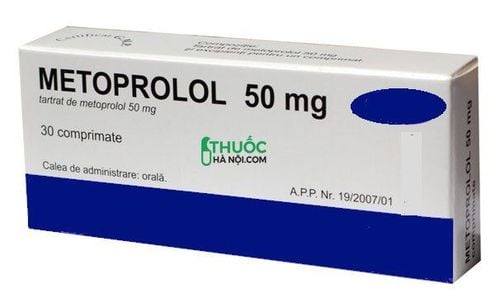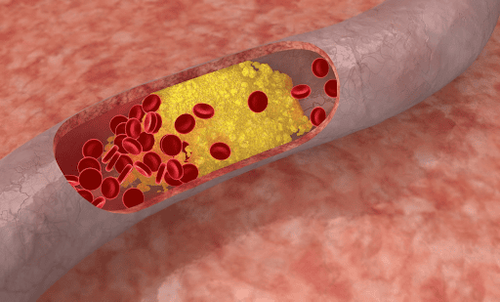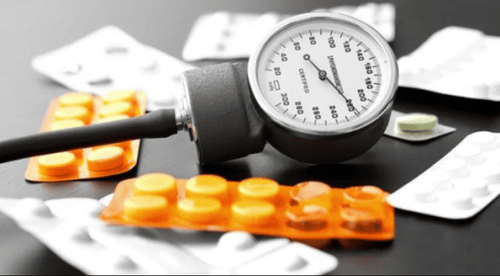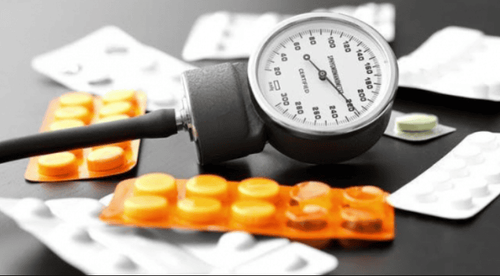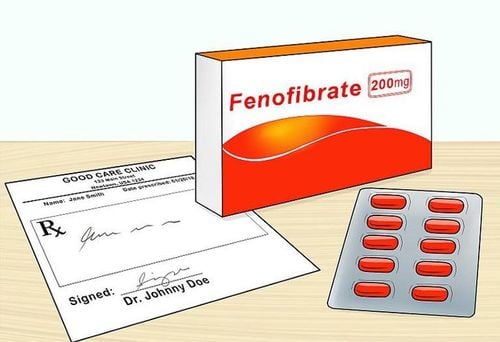This is an automatically translated article.
In addition to the treatment of kidney problems such as slowing down kidney failure for patients with diabetes, Lisinopril is also used to treat heart-related diseases, prevent stroke, heart attack.
1. Uses of Lisinopril
Lisinopril is an ACE inhibitor and works by dilating blood vessels so blood can flow more easily. In addition to treating kidney problems, the drug is also used to treat heart failure, heart attack, and to improve your health after a heart attack.Lisinopril has the ability to reduce afterload and help reduce vascular tension in systole, increase cardiac output and cardiac index, increase cardiac contractility and increase systolic volume. Reduces preload and diastolic wall tension. The drug is indicated for use in people with reduced systolic function to prevent or slow the progression of heart failure. The drug is one of the standard drugs in the treatment of patients with myocardial infarction.
Medicines are only really effective when the patient takes them regularly, even if you feel better. Because patients with high blood pressure often do not feel symptoms. One advice from your doctor is that you should take your medicine at the same time every day to avoid forgetting a dose. Even in case, you forget to take a dose, take it as soon as possible. However, skip the missed dose and take your next dose at the scheduled time, if it is almost time for your next dose. Absolutely do not arbitrarily double the dose prescribed.
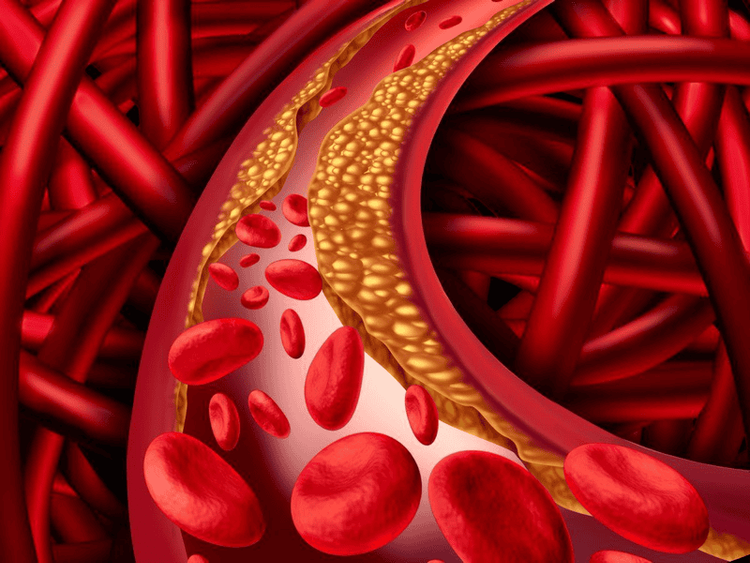
Thuốc Lisinopril giúp giãn cách mạch máu để máu lưu thông dễ dàng hơn
In fact, when using lisinopril in the treatment of heart failure it takes a long time from a few weeks to a few months to get the best benefit. When your condition does not improve such as: Blood pressure is still high and increased, it is necessary to notify your doctor as soon as possible to receive treatment advice.
Lisinopril can bring serious or mild side effects depending on the condition of each patient. However, even if you experience any symptoms that are a side effect of the drug, you should see a doctor for treatment. Less serious side effects you may experience include: Cough; dizziness, drowsiness, headache; bored; nausea, vomiting, diarrhea, upset stomach; mild skin itching or rash.
Serious side effects affecting the patient's health such as: Rash; severe stomach pain, trouble breathing ; swelling of the face, lips, tongue, or throat, or,
Feeling tired or fainting Difficulty urinating such as: Urinating less than usual or not urinating at all; Swelling, sudden weight gain, rapid gain; Fever, body aches and flu symptoms; muscle weakness, strong or irregular heartbeat; Psoriasis (skin raised, peeled off); Chest pain; High blood potassium

Bệnh nhân có thể bị đau đầu chóng mặt do tác dụng phụ của thuốc
2. Dosage of Lisinopril
Use of lisinopril in cardiovascular treatment should depend on health status, response to treatment, age, or weight (for children). When using this medication, you should take it with or without food as directed by your doctor, usually once daily. For liquid drug preparations, shake the bottle well before use and measure the dose with a special measuring device/spoon.
Dosage for adults with congestive heart failure :
Initial dose: Adults can take 2.5 - 5 mg orally once a day; Maintenance dose: May be increased according to response capacity; Maximum dose: 40 mg orally once a day. Usual dose for patients with myocardial infarction:
With the starting dose: The doctor may prescribe 5mg orally (within 24 hours after acute myocardial infarction). For subsequent doses, you take 5 mg orally after 24 hours and then take 10 mg orally after 48 hours; Maintenance dose: 10 mg orally once a day. You should continue to take the medication for at least 6 weeks. Usual Adult Dose for Diabetic Kidney Disease:
Initial dose: 10 - 20 mg orally once a day; Maintenance dose: 20-40 mg orally once a day is allowed. After 3 days, your doctor will adjust the dose.

Người bệnh cần tuân thủ liều dùng theo đúng chỉ định của bác sĩ
Usual Pediatric Dose for Hypertension:
Dosage for Children over 6 years old:
Initial dose: Use 0.07 mg/kg orally once daily (maximum initial dose is 5 mg daily). once); Maintenance dose: Should be adjusted according to blood pressure response over 1-2 weeks; Maximum dose: Doses above 0.61 mg/kg or greater than 40 mg have not been studied in children.
. Notes when using the drug
For any drug, especially lisinopril, you need to be careful when using the drug, follow the doctor's instructions and carefully read the instructions for use.
The patient's ability to drive or operate machinery may be affected by the use of the drug. Patients may experience increased blood pressure and symptomatic hypotension may occur while being treated with diuretics or in cases of hypovolemia and salt loss due to excessive sweating, prolonged vomiting. , diarrhea and in the case of heart disease. If hypotension occurs, place the patient in supine position and administer saline solution. Although there are no studies on the harmful effects of using the drug in pregnant women, you should inform your doctor about whether you plan to become pregnant or are breast-feeding. If pregnancy is detected, the drug should be discontinued immediately. If you have ever had heart disease tell your doctor.

Phụ nữ có thai không được sử dụng thuốc đề phòng tác dụng phụ
Lisinopril can interact with some medications you are taking, causing unwanted side effects. To prevent this from happening, tell your doctor about all the medicines you are taking, including vitamins and supplements. Do not arbitrarily use the drug, stop or change the dose of the drug without the consent of the doctor.
The drug can interact with some foods, drinks, alcohol, tobacco, so consult your doctor or pharmacist. Absolutely, do not throw medicine down the toilet or plumbing, unless asked to. Throw away the medicine when it is past its expiration date or cannot be used.
To protect cardiovascular health in general and detect early signs of myocardial infarction and stroke, customers can sign up for Cardiovascular Screening Package - Basic Cardiovascular Examination of Vinmec International General Hospital . The examination package helps to detect cardiovascular problems at the earliest through tests and modern imaging methods. The package is for all ages, genders and is especially essential for people with risk factors for cardiovascular disease.
If you have a need for consultation and examination at Hospitals under the national health system, please book an appointment on the website to be served.
Please dial HOTLINE for more information or register for an appointment HERE. Download MyVinmec app to make appointments faster and to manage your bookings easily.




